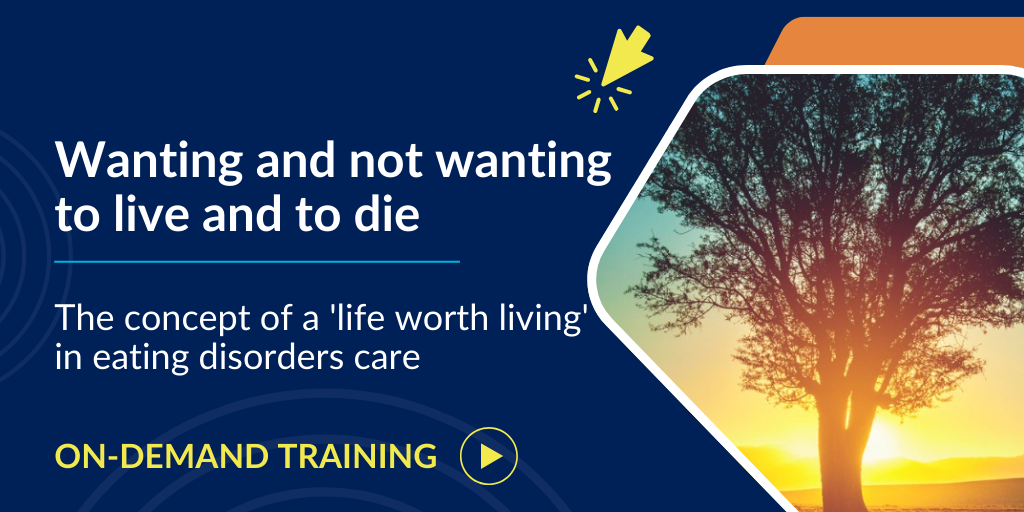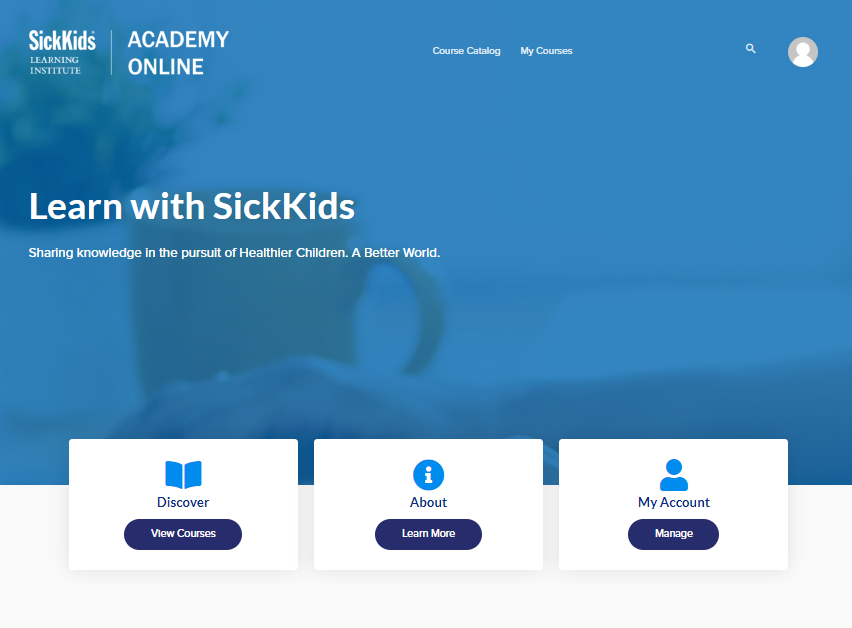The concept of a ‘life worth living’ in eating disorders (EDs) care: Wanting and not wanting to live and to die

Deepen your clinical practice with innovative DBT and MED-DBT strategies to help clients navigate ambivalence, meaning, and quality of life in eating disorder recovery.
This training is suitable for:
- Mental Health Professionals: psychotherapists, counsellors, psychologists, social workers
- Medical Professionals: nurses, psychiatrists, pediatricians, family doctors
- Direct Service Workers: drop-in workers, shelter and hostel workers, child and youth workers, youth justice workers
- Educators: teachers, ECE, school administration, support staff
- First Responders: police, firefighters, paramedics
Client category: Professionals working with individuals 12 years to adulthood.
CE hours: 6
Life worth living in eating disorders care: Overview
Building a life worth living in eating disorders care goes beyond focusing only on weight and nutritional stability. While these are essential to recovery, improving quality of life and working with ambivalence or anosognosia often receive little attention. While essential to recovery, improving quality of life and working with ambivalence or anosognosia often receive little attention. This gap continues to represent a substantial issue in care. Those receiving treatment have reported wanting approaches that are more collaborative and less rigid in their definitions of recovery. They also wish for care that prioritizes and broadens approaches to psychological and physical well-being.
MED-DBT is an innovative, multimodal treatment. MED-DBT treats individuals suffering with multiple co-occurring conditions in the context of an eating disorder. Like standard DBT, its overarching goal is to help clients escape “survival mode” and focus on building a life worth living in eating disorders care. Linehan (1993) described a life worth living as one that has personal meaning, a sense of purpose and connection, and one that brings joy and pleasure.
To date, most of the published literature on life worth living (LWL) focuses on suicide and self-injury. What does a LWL mean for those struggling with eating disorders? In our experience, the concept of building a LWL presents unique challenges when applied to EDs. For example, how do we build a LWL in cultures that are systemically weight biased and motivated by diet culture? How might the clinician’s own views about eating, weight, and health impact LWL discussions? In addition, those struggling with EDs also experience ambivalence, anosognosia, and/or co-occurring physical conditions that can worsen with traditional ED recovery making a LWL a complicated goal.
Training description:
In this Intermediate training, James and Anita will take participants through an in-depth exploration of the LWL discussion in the ED context. This highly engaging training will explore definitions of LWL. Who we include and exclude in common quality of life dialogues, and our personal relationships to LWL. You’ll learn how to help clients build a LWL without falling into hopelessness or despair, examine the roles of clinicians and caregivers, and identify obstacles along the way.
Learning objectives:
- Describe and define the concept of building lives worth living in DBT.
- Identify why the life worth living goal may be challenging when working with people with eating disorders.
- Demonstrate practical ways to bring the LWL conversation into the therapy context.
- Explain why it is helpful to find a middle ground when talking about living and dying in the care of those with EDs.
- Explore collaborative and dialectical strategies to help clients find meaning, purpose, and value – even in the face of ambivalence.
Register today to gain practical tools and deeper insight into guiding clients toward a life worth living in eating disorders care — even in the presence of ambivalence, complexity, and co-occurring challenges.
Upon registration participants will receive a confirmation email that includes access information to our on-demand training platform, SickKids Academy Online. Participants will have access for 90 days from the date they begin the course on SickKids Academy Online. Following the training, participants are required to complete a quiz to receive the Certificate of Participation.

This program was originally recorded on November 18, 2024.
Updated January 5, 2026



